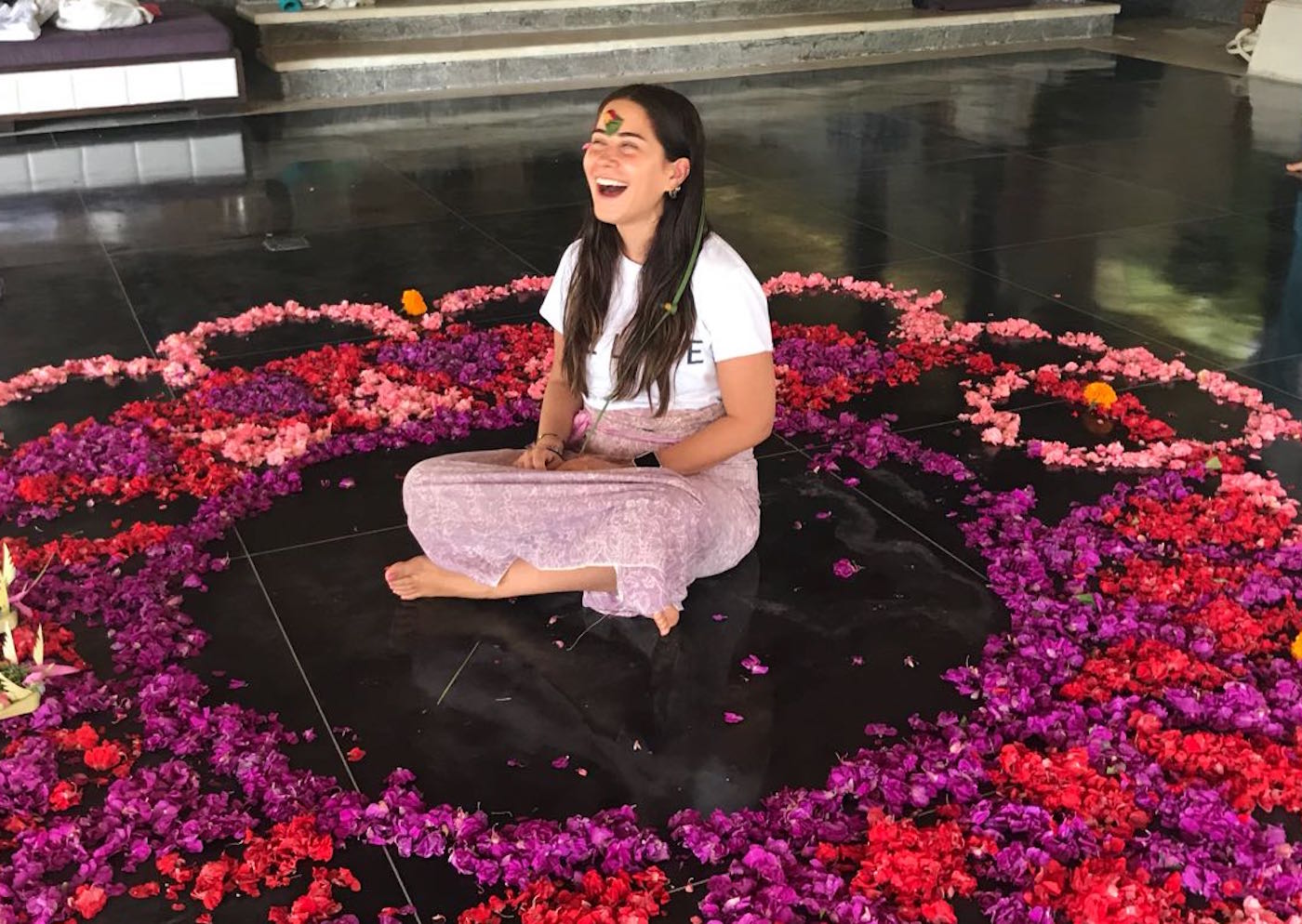Once upon a time …
… there lived a yogi the mountains of the Himalayas, alone and withdrawn in a small hut. The village at the foot of the mountain had taken over the care of him sending supplies and food – whatever he needed. They went to visit him when they needed advise or rest in exchange. When a festival was organized in the village, the yogi was informed that a delegation would like to visit him. On the day of the festival, the yogi started to spring-clean his hut and polished the floor, the windows, kitchen, and altar, washed all the linen and curtains, repaired the doors and then sat back down to meditate. He could not meditate. Whatever he tried, he could not meditate. After some back and forth, he suddenly got up, went outside, dug his hands into dirt and dust, came back and threw two handfuls all around his spotless hut – at just that moment he attained enlightenment!
Have you ever represented yourself different than you really are? Have you ever staged yourself knowingly in an alter ego, even though you knew that you are completely different? Did you ever want to impress someone and said something about yourself that is not true? Maybe you have once agreed to something that you did not want to do and that turned out to be to your disadvantage? Have you ever pretended to be someone else, or lived in a fantasy of being a celebrity, famous in a different life, but not your own?
We sometimes show the world a different “me” than we trully are or say and do something else as we really feel to impress, to please, to be someone we are not or to imitate someone we want to be. Dissatisfied with and without trust in our Divine Self, the grass across the fence looks greener and the neighbor better. Sometimes it even goes so far as to marry someone because of status, taking a job for prestige, having friends to boast. After all this effort, why do we still feel in the wrong place? Why do we not feel well standing next to the closest confidante? … want to jump out of your own skin? Could it be that in such situations we have lost our authenticity and do what others say we “should” do or maybe our parents think we “need” to do or society thinks we “must” do? In a world of advertising, newspapers full of malnourished models, CNN, and social media, we are completely used to seeing images that are posed, staged or photoshopped, yet unconsciously perceive them as “real.”
“The media and religion are intervening agents blocking the way to true experience, authenticity and God.” Kierkegaard
What does yoga say about all that? Yoga comes from “yog / jog” – which means union, connection; At first one immediately thinks that this is the connection between body, mind and soul, but as written in the ancient, Vedic and Yogic texts, this is really about the connection to our own Atman (individual soul, to our “real” self) and between our Atman and Brahman (the universal soul). It goes beyond and includes the physical and manifest, but leads deeper into our most inner core of who we really are and why we really are here. That takes us first of all to look into ourselves, what we want and feel before we look outwards and at others. And to match this with our intuition, with our gut feeling, with our dharma (our path, reason d’etre – the reason why we are here, our vocation, our talent). So we strive to be true to ourself and to remain true, even if it is different than the neighbor’s garden, goes against our friend’s advise and opinions and society’s do’s and don’t’s. If you follow this path, even if others turn away because of it or perhaps a “plan” does not work out, then the reward is that we feel right, we feel at peace, at rest, in harmony, in the middle – it is our way.
In order to consolidate this, Patanjali has described eight steps in his Yoga Sutras, where he puts practical instruments into our hands such as physical postures, breathing and meditation but also how we are advised to behave towards ourselves and others.
On the yoga mat that means for us students to practice “our yoga”. Yoga is so individual, even if we practice in a group: how do I feel today, which yoga suits me, how is my body and which yoga fits in with this today? It’s my yoga, not the one of the neighbour, along with “Ahimsa” (non-violence), where we do not go beyond our limits and hurt ourselves, but slow down. Or suddenly the CEO in the company trots to a yoga class instead of sitting in the wine tavern eating a schnitzel even if his collegagues call it “girlie”. If we avoid our “innermost path”, our dharma, the existentialists say that we choose the path of boredom, chronic tension to depression and deepest despair where often only a “quick fix” such as drugs, alcohol or shopping comes to the rescue.
If we follow our innermost voice, accept a job that is fun or in the countryside, even though we earn less, then that is my path for myself at that moment. The Balinese are a wonderful example here: in general, the Balinese stay with a company or “boss” for a lifetime, they do not change the job when they feel comfortable, no matter how high the salary. Balinese quit immediately, if they do not feel well treated or in a disharmonious environment, no matter how much money and bonus one would offer; their peace of mind, their family and their home temple is so much more important to them. This is common practice in Bali.
What does authenticity mean for yoga teachers? Often I feel myself or hear from colleagues that a yoga teacher is seen as this super-individual – a person who meditates and practices yoga on a daily basis, is super flexible with or without mat radiating this inner peace, full of health, in balance and has time and solutions for every need and problem of the students every day. Like a soul- doctor-acrobat-sunshine. But isn’t it a relief really for both sides if the teacher admits to his weak spots and might mention in class: “ok I’m not feeling so well today, I have just gone through this and that, this is what I learned and here I am back to the mat.” Just to be an authentic human and to show how yoga helps to go through these ups and downs. I always tell my teachers in the studio when confidence fails and doubt creeps in especially with new teachers:
“teach what you know”
– watching a video or imitating another teacher’s sequence may be a momentary inspiration, but if you have not practiced or experienced it, it makes no sense to teach it. Only teach what you really know, what you have experienced in your body, mind and soul. That’s why a daily yoga practice is so important for teachers of yoga.
Teaching from experience meets the hearts of students.
- Listening to your own voice,
- dropping masks and
- staying in the present
can bring us Satya, truth, as Patanjali describes in his Yoga Sutras.
“Tear off the mask. Your face is glorious.” Rumi
by Beate

